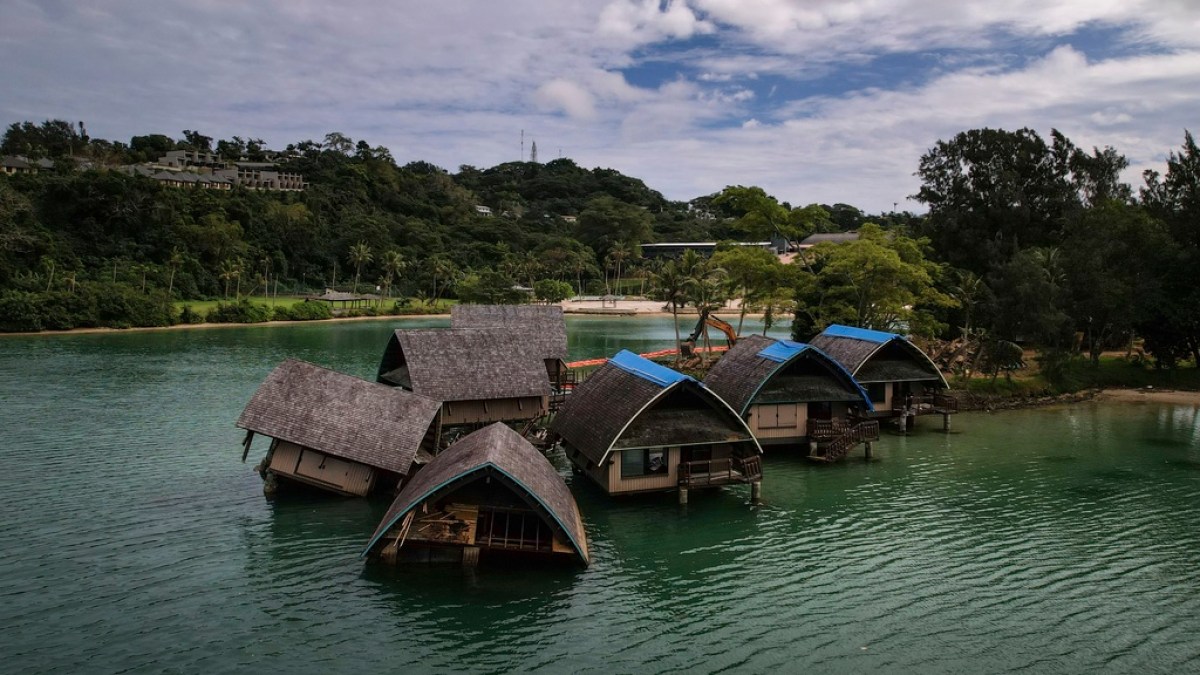Australian Prime Minister Anthony Albanese, who is visiting Vanuatu, has said he will not be signing a landmark security and climate resilience agreement with the Pacific island nation as was expected.
“I wouldn’t expect that it would be signed today, but what we will do is progress it,” Albanese said in a radio interview with the Australian Broadcasting Corporation on Tuesday morning.
Recommended Stories
list of 4 itemsend of list
“Vanuatu politics can be very complex,” he said.
In a ceremony last month, Australia initialled a deal worth 500 million Australian dollars ($326.5m) to strengthen economic and security ties with Vanuatu.
The Vanuatu deal is one of two major security agreements Australia had expected to sign with Pacific island neighbours this month, as Canberra seeks to block China from expanding its security presence in the region.
Vanuatu Prime Minister Jotham Napat said at a news conference that the delay in signing the pact was due to his government’s coalition partner being concerned that the deal would limit Vanuatu’s access to infrastructure funding from other countries.
Beijing is Vanuatu’s largest external creditor, after Chinese banks extended loans to Vanuatu to pay Chinese companies to build infrastructure, including a presidential office complex, the nation’s parliament, and roads.
Albanese told reporters he was confident the deal would be signed soon.
“This is an agreement that will importantly respect the sovereignty of Vanuatu, but one as well that will respect the sovereignty of Australia,” he said.
A 2022 security deal signed by Australia and Vanuatu, months after China signed a pact with the Solomon Islands, was later blocked by Vanuatu after failing to win domestic political support.
The newly drafted Nakamal Agreement goes beyond the terms of other similar security pacts, to include climate resilience, economic development and “simpler access to Australia for Vanuatu citizens”.
Vanuatu, which has been battered by repeated cyclones, rising sea levels and other problems made worse by climate change, has taken a leading role in addressing the issue at the global level.
After Vanuatu, Albanese will head to Solomon Islands, where Australia will participate in the Pacific Islands Forum as one of 18 member countries.
Notably, the Solomon Islands chose not to invite observers to participate this year, meaning China and the United States will not be attending.
Asked about the decision to bar non-members, Albanese said, “We think that the presence of partners to observe events, whether that be the United States or Taiwan or other countries, is something that adds to the forum.”
“But that is a decision that’s being made by the Solomons,” which he emphasises is a “sovereign nation”.
After the Solomon Islands, Albanese is expected to travel to Papua New Guinea (PNG) next week for the 50th anniversary of independence celebrations, where a new defence treaty between Australia and PNG is due to be signed.
Source: Aljazeera

Leave a Reply